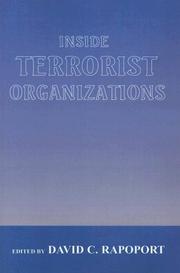| Listing 1 - 10 of 1134 | << page >> |
Sort by
|
Book
Abstract | Keywords | Export | Availability | Bookmark
 Loading...
Loading...Choose an application
- Reference Manager
- EndNote
- RefWorks (Direct export to RefWorks)
A key issue with human rights is how to allocate duties correlative to rights claims. But the philosophical literature, drawing largely on naturalistic or interactional accounts of human rights, develops answers to this question that do not illuminate actual human rights problems. Charles Beitz, in recent work, attempts to develop a conception of human rights more firmly rooted in, and helpful for, current practice. While a move in the right direction, his account does not incorporate the domestic practice of human rights, and as a result remains insufficiently instructive for many human rights challenges. This paper addresses the problem of allocating correlative duties by taking the practices of domestic courts in several countries as a normative benchmark. Upon reviewing how courts in Colombia, India, South Africa, Indonesia, and elsewhere have allocated duties associated with socio-economic rights, the paper finds that courts urge parties to move from an adversarial to an investigative mode, impose requirements that parties argue in good faith, and structure a public forum of communication. The conclusion argues that judicial practice involves requiring respondents to engage in communicative, instead of strategic, action, and explores the implications of this understanding of human rights.
Courts --- Gender and Law --- Health Law --- Human Rights --- International Terrorism & Counterterrorism --- Law and Development --- Macroeconomics and Economic Growth --- Parliamentary Government --- Social policy

ISBN: 2843430593 Year: 2001 Publisher: Paris L'Express Editions
Abstract | Keywords | Export | Availability | Bookmark
 Loading...
Loading...Choose an application
- Reference Manager
- EndNote
- RefWorks (Direct export to RefWorks)
International Terrorism --- 11 septembre 2001 --- terrorisme --- Oussama ben Laden --- Twin Towers --- New York --- Pentagon --- Washington --- Sarajevo --- juin 1914 --- la Première Guerre Mondiale --- Anschluss en mars 1938 --- 1939-1945
Book
Year: 2012 Publisher: Washington, D.C., The World Bank,
Abstract | Keywords | Export | Availability | Bookmark
 Loading...
Loading...Choose an application
- Reference Manager
- EndNote
- RefWorks (Direct export to RefWorks)
Most analyses of conflict assume that conflicting groups act in a unitary fashion. This assumption is often violated: to reduce their risk of replacement, group leaders prevent both group members and soldiers from acting collectively, making it difficult for leaders to make credible commitments to them. Lifting the assumption that groups are unitary shifts the analysis of a wide range of conflict issues. The effects of income shocks and rents on conflict risk become contingent on collective action. Leader decisions regarding collective action explain the forcible recruitment of child soldiers and predation on civilians: leaders who prefer to limit military organization are more likely to pursue these tactics. Leader decisions regarding collective action also introduce an unexplored mechanism by which state capacity is created and a specific reason to regard state capacity as endogenous to conflict risk. This focus, finally, suggests that interventions to reduce conflict risk, such as safety net payments or service delivery, are likely to be most difficult to deliver precisely where leaders are most reluctant to allow collective action and where, therefore, conflict risk is highest.
Armed Conflict --- Civil war --- Collective action --- Conflict --- Credible commitment --- International Terrorism & Counterterrorism --- Labor Policies --- Macroeconomics and Economic Growth --- Peace & Peacekeeping --- Post Conflict Reconstruction
Book
Year: 2021 Publisher: Washington, D.C. : The World Bank,
Abstract | Keywords | Export | Availability | Bookmark
 Loading...
Loading...Choose an application
- Reference Manager
- EndNote
- RefWorks (Direct export to RefWorks)
Financial system safeguards against money laundering and terrorist financing are crucial for the integrity of the global financial system, but these safeguards need to be crafted in such a way that they do not negatively affect financial inclusion and disincentive the use of the formal financial system by ordinary individuals and businesses. This study examines the possible unintended consequences of the implementation of international standards on anti-money laundering, combating the financing of terrorism (AML-CFT) on financial inclusion objectives and proposes ways to address any such consequences. This examination focuses mainly on external AML-CFT compliance evaluations, so-called mutual evaluations, led by international organizations and the money laundering and terrorist financing (ML-TF) risk assessments undertaken by the countries themselves. The analysis is supplemented by interviews with officials and private sector representatives from three countries and by field experience and observations from experts. The Financial Action Task Force (FATF), the international standard setter for AML-CFT, has been devoting increasing attention to financial inclusion over the past decade, but this is not yet fully reflected in country mutual evaluations. The FATF's increasing attention is evident in its guidance papers on financial inclusion and digital identification (ID), and in the recognition of the importance of financial inclusion in its 2019 mandate. However, coverage of financial inclusion in mutual evaluations is still uneven and mostly superficial and is not accompanied by concrete policy recommendations.
Book
Year: 2021 Publisher: Washington, D.C. : The World Bank,
Abstract | Keywords | Export | Availability | Bookmark
 Loading...
Loading...Choose an application
- Reference Manager
- EndNote
- RefWorks (Direct export to RefWorks)
Does the internet enable the recruitment of transnational terrorists Using geo-referenced population census data and personnel records from the Islamic State in Iraq and the Levant-a highly tech-savvy terrorist organization-this paper shows that internet access has facilitated the organization's recruitment of foreign fighters from Tunisia. The positive association between internet access and Daesh recruitment is robust to controlling for a large set of observable and unobservable confounders as well as instrumenting internet access rates with the incidence of lightning strikes.
Book
Abstract | Keywords | Export | Availability | Bookmark
 Loading...
Loading...Choose an application
- Reference Manager
- EndNote
- RefWorks (Direct export to RefWorks)
A key issue with human rights is how to allocate duties correlative to rights claims. But the philosophical literature, drawing largely on naturalistic or interactional accounts of human rights, develops answers to this question that do not illuminate actual human rights problems. Charles Beitz, in recent work, attempts to develop a conception of human rights more firmly rooted in, and helpful for, current practice. While a move in the right direction, his account does not incorporate the domestic practice of human rights, and as a result remains insufficiently instructive for many human rights challenges. This paper addresses the problem of allocating correlative duties by taking the practices of domestic courts in several countries as a normative benchmark. Upon reviewing how courts in Colombia, India, South Africa, Indonesia, and elsewhere have allocated duties associated with socio-economic rights, the paper finds that courts urge parties to move from an adversarial to an investigative mode, impose requirements that parties argue in good faith, and structure a public forum of communication. The conclusion argues that judicial practice involves requiring respondents to engage in communicative, instead of strategic, action, and explores the implications of this understanding of human rights.
Courts --- Gender and Law --- Health Law --- Human Rights --- International Terrorism & Counterterrorism --- Law and Development --- Macroeconomics and Economic Growth --- Parliamentary Government --- Social policy
Periodical
Abstract | Keywords | Export | Availability | Bookmark
 Loading...
Loading...Choose an application
- Reference Manager
- EndNote
- RefWorks (Direct export to RefWorks)
Polemology --- Terrorism --- Terrorisme --- Periodicals. --- Périodiques --- Terrorism. --- Acts of terrorism --- Attacks, Terrorist --- Global terrorism --- International terrorism --- Political terrorism --- Terror attacks --- Terrorist acts --- Terrorist attacks --- World terrorism --- Direct action --- Insurgency --- Political crimes and offenses --- Subversive activities --- Political violence --- Terror --- Polemologie
Book
ISBN: 9780231170000 9780231539128 0231539126 Year: 2015 Publisher: New York, NY
Abstract | Keywords | Export | Availability | Bookmark
 Loading...
Loading...Choose an application
- Reference Manager
- EndNote
- RefWorks (Direct export to RefWorks)
The counterinsurgency (COIN) paradigm dominates military and political conduct in contemporary Western strategic thought. It assumes future wars will unfold as "low intensity" conflicts within rather than between states, requiring specialized military training and techniques. COIN is understood as a logical, effective, and democratically palatable method for confronting insurgency-a discrete set of practices that, through the actions of knowledgeable soldiers and under the guidance of an expert elite, creates lasting results.Through an extensive investigation into COIN's theories, methods, and outcomes, this book undermines enduring claims about COIN's success while revealing its hidden meanings and effects. Interrogating the relationship between counterinsurgency and war, the authors question the supposed uniqueness of COIN's attributes and try to resolve the puzzle of its intellectual identity. Is COIN a strategy, a doctrine, a theory, a military practice, or something else? Their analysis ultimately exposes a critical paradox within COIN: while it ignores the vital political dimensions of war, it is nevertheless the product of a misplaced ideological faith in modernization.
Polemology --- Counterinsurgency --- Terrorism --- Acts of terrorism --- Attacks, Terrorist --- Global terrorism --- International terrorism --- Political terrorism --- Terror attacks --- Terrorist acts --- Terrorist attacks --- World terrorism --- Direct action --- Insurgency --- Political crimes and offenses --- Subversive activities --- Political violence --- Terror --- Counterguerrilla warfare --- Guerrilla warfare --- History

ISBN: 0714681792 9780714681795 9781315040004 9781135311780 9781135311858 9781135311926 9781138154216 Year: 2001 Publisher: London Cass
Abstract | Keywords | Export | Availability | Bookmark
 Loading...
Loading...Choose an application
- Reference Manager
- EndNote
- RefWorks (Direct export to RefWorks)
International movements --- Terrorism --- Terrorists --- Acts of terrorism --- Attacks, Terrorist --- Global terrorism --- International terrorism --- Political terrorism --- Terror attacks --- Terrorist acts --- Terrorist attacks --- World terrorism --- Direct action --- Insurgency --- Political crimes and offenses --- Subversive activities --- Political violence --- Terror --- Psychology
Book
ISBN: 9789211337778 Year: 2008 Publisher: New York United Nations
Abstract | Keywords | Export | Availability | Bookmark
 Loading...
Loading...Choose an application
- Reference Manager
- EndNote
- RefWorks (Direct export to RefWorks)
Acts of terrorism --- Terrorism --- Terrorisme --- Terrorist acts --- -Acts of terrorism --- Attacks, Terrorist --- Global terrorism --- International terrorism --- Political terrorism --- Terror attacks --- Terrorist attacks --- World terrorism --- Direct action --- Insurgency --- Political crimes and offenses --- Subversive activities --- Political violence --- Terror --- Prevention --- -Prevention
| Listing 1 - 10 of 1134 | << page >> |
Sort by
|

 Search
Search Feedback
Feedback About UniCat
About UniCat  Help
Help News
News